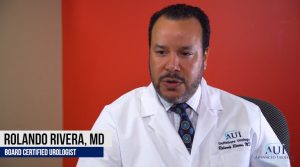How to Treat Kidney Stones with Dr. Rolando Rivera?
KEY TAKEAWAYS:
- Treatment for kidney stones varies depending on their size, type, and location. Small stones can typically be passed with hydration and medication, while larger stones may require more extensive treatment like lithotripsy or surgery.
- Lithotripsy, a non-invasive procedure, uses high-energy shock waves to break larger kidney stones into smaller pieces, allowing them to be passed during urination. This treatment has largely replaced surgical removal of stones.
- Preventing kidney stones involves drinking plenty of water, reducing intake of oxalate-rich foods, limiting dietary salt and animal proteins, and taking medications to target specific types of stones.
https://www.youtube.com/watch?v=UQa58Q-S4Y8
Treatment of Kidney Stones
The treatment available for kidney stones varies according to the size and type of kidney stone and its location.
If the stones are small, they probably won’t require invasive treatment and can be passed with hydration and medication like pain relievers and alpha blockers that relax the muscles in your ureter. This is how most kidney stones are resolved.
 If you have large stones, however, your urologist may approach them with more extensive treatment. There are several ways to eliminate them. If you have severe pain, an infection, or your kidney function is threatened, your doctor will want to act quickly. Fortunately, during the 1980s a new approach to getting rid of the stones appeared on the medical scene and quickly replaced surgical removal of the stones. This treatment, called lithotripsy, uses sound waves to break larger kidney stones into tiny pieces so they can be passed during urination. These sound waves are also called high-energy shock waves and are usually implemented from outside the body in what is called “extracorporeal shock wave lithotripsy” or ESWL. The procedure takes about 45 minutes to an hour and you may be put under light sedation during treatment.
If you have large stones, however, your urologist may approach them with more extensive treatment. There are several ways to eliminate them. If you have severe pain, an infection, or your kidney function is threatened, your doctor will want to act quickly. Fortunately, during the 1980s a new approach to getting rid of the stones appeared on the medical scene and quickly replaced surgical removal of the stones. This treatment, called lithotripsy, uses sound waves to break larger kidney stones into tiny pieces so they can be passed during urination. These sound waves are also called high-energy shock waves and are usually implemented from outside the body in what is called “extracorporeal shock wave lithotripsy” or ESWL. The procedure takes about 45 minutes to an hour and you may be put under light sedation during treatment.
If the stones are larger and located in the kidney, or if ESWL did not break them down, your urologist may perform surgery to remove them. Your doctor can explain the surgical approach he recommends.
What Causes Kidney Stones?
Calcium phosphate stones are caused by overactive parathyroid glands which are located below your Adam’s apple. When these glands overproduce the parathyroid hormone the result is hyperparathyroidism, resulting in an excess of calcium that may cause kidney stones. Your doctor likely will recommend treatment to stop your parathyroid gland from overproducing the hormone.
Prevention of Kidney Stones
You may lower your risk of kidney stones if you:
- Drink large amounts of water during the day. If you are in a dry environment or exercise significantly, you may need even more water, drinking enough so your urine looks almost clear.
- Consume fewer oxalate-rich foods. If your doctor determines you have calcium oxalate stones, he may recommend dietary changes to reduce foods that are high in oxalate, like beets, spinach, sweet potatoes, tea, chocolate, nuts and soy products.
- Reduce your dietary salt and consumption of animal proteins.
Medications
Medications may help prevent kidney stones, depending on the type of stone. Uric acid stones, calcium stones, cystine stones and struvite stones each require a different plan for prevention.
If you reside in Florida, you are probably not far from an Advanced Urology Institute location. If you are near Naples or Bonita Springs, you may wish to consult with Dr. Rolando Rivera for your kidney stone symptoms and treatment. For more information, visit the Advanced Urology Institute website.
TRANSCRIPTION:
I’m Rolando Rivera and I’m board certified in Urology and Female Public Medicine and Reconstructed Surgery with Advanced Urology Institute.
The treatment options will depend on the size of the stone and the location. The smaller the stone, the more likely that we would recommend a trial of passage because the majority of them can pass on their own with appropriate hydration and medications. The bigger stones we would treat with either endoscopic procedures with lasers or shockwave therapy, depending, and other stones can be treated with external shock wave literacy as well. Really big stones that are really hard can be accessed directly, externally, whether they’re in the kidney, through the back, or with other robotic surgeries as well.
REFERENCES:
- “Kidney Stone Treatment: Shock Wave Lithotripsy.” https://www.kidney.org/atoz/content/kidneystones_shockwave.
- “Lithotripsy – Preparation, procedure, recovery, and side effects.” https://www.kidney.org/atoz/content/lithotripsy.
- “Kidney stones – Symptoms and causes – Mayo Clinic.” 3 Jun. 2022, https://www.mayoclinic.org/diseases-conditions/kidney-stones/symptoms-causes/syc-20355755.

